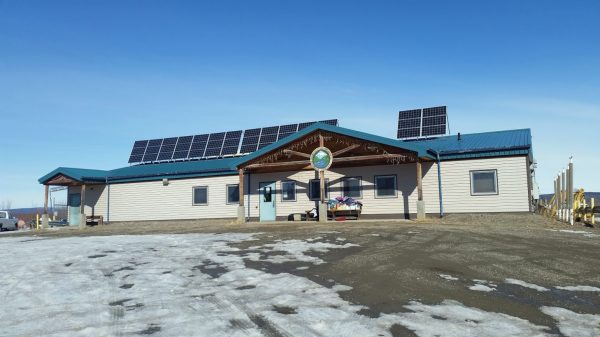$2.4 million grant to fund study of renewable energy impacts
September 26, 2017
Jeff Richardson
907-474-6284

A team of University of Alaska researchers has received a $2.4 million federal grant to study whether the use of renewable power could help small Alaska communities provide food, energy and safe water sustainably.
The National Science Foundation-funded project will study energy use and its impacts in the remote communities of Cordova, Tanana and Igiugig. Many off-road Alaska communities rely on expensive diesel generators for electricity, but interest is growing in alternate sources like wind, water and solar. Such alternative sources hold promise for supplying energy, and potentially food and water, but could affect the stability of a rural community’s microgrid.
The University of Alaska research team will include University of Alaska Fairbanks researchers Bill Schnabel, Daisy Huang, Erin Whitney, Rich Wies and Srijan Aggarwal, as well as Jennifer Schmidt and Aaron Dotson from the University of Alaska Anchorage. Additional collaborators include Henry Huntington, from Huntington Consulting, and University of Calgary researchers Craig Gerlach and Harry Penn.
The 3.5-year interdisciplinary study will look at the broad potential of renewable power to boost the security of food, energy and water sanitation in remote areas. For example, it will review how decreased energy costs may benefit other priorities, such as providing more money for subsistence activities, or whether a surplus of electricity could encourage more local food production.
The research could ultimately guide future community planning efforts in Alaska and the larger Arctic region.
“We’re trying to bring a lot of things together that haven’t been brought together before,” said Whitney, a researcher at the UAF Alaska Center for Energy and Power. “It has the potential for having a very big impact.”
The NSF study will parallel a similar Canadian project, allowing researchers to compare results from different northern regions. Whitney said the research will include data analysis, microgrid testing and input from local residents.
The participating communities have varying populations and methods of power generation. Cordova, with more than 2,000 people, uses hydropower and diesel generation. Tanana, with about 300 residents, has installed biomass boilers to power its laundry and shower facility. The Alaska Peninsula community of Igiugug, with about 50 residents, relies heavily on diesel fuel but is looking to include renewable energy to its small electric grid.
Whitney said understanding the unique needs of each of those areas will be an important piece of the project.
“This is not a case of the researchers telling the community what to do,” Whitney said. “We very much want the communities to guide us."


